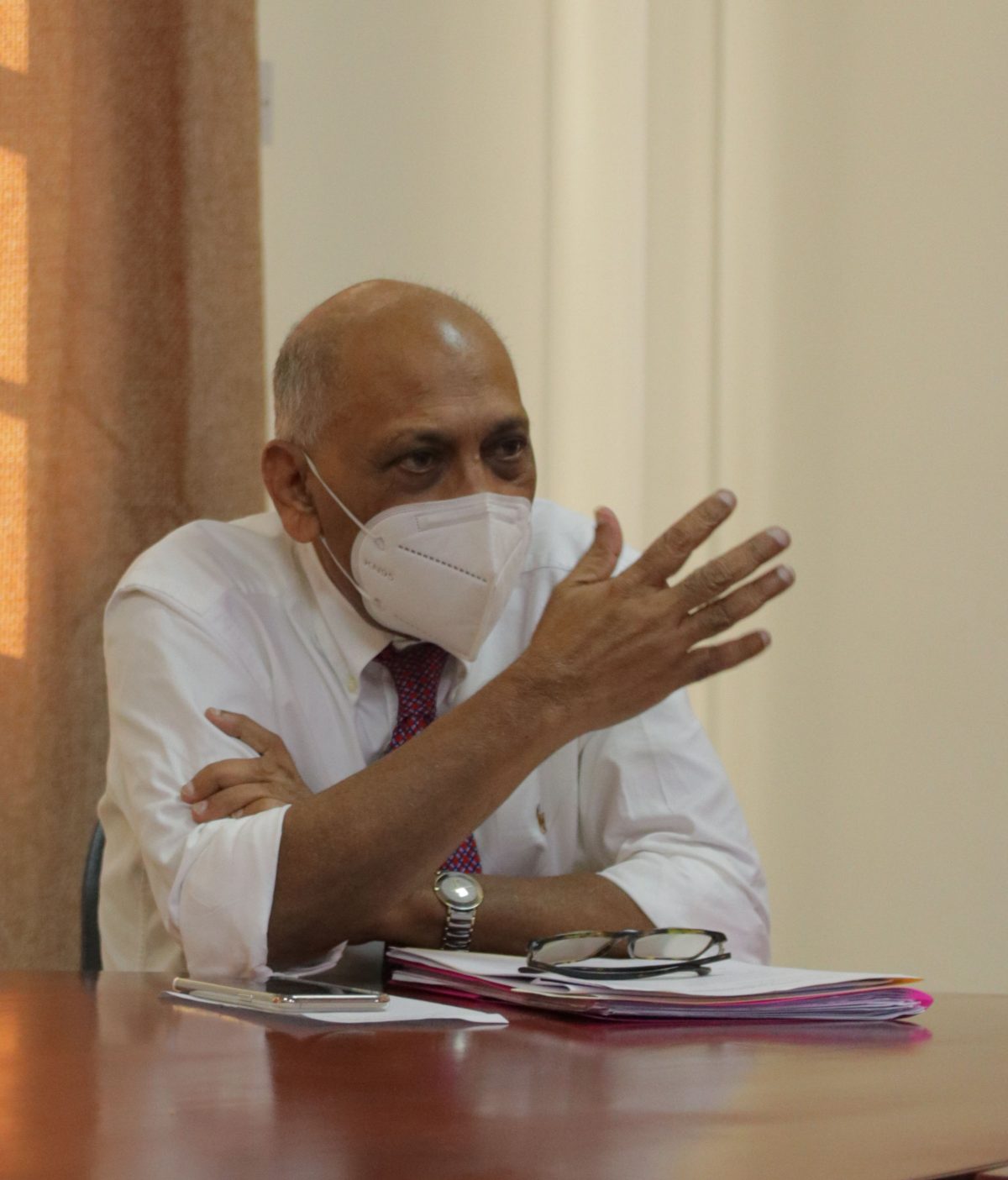Updated consumption reports on drugs across the regions could have been used to obviate the shortages currently being experienced, according to advisor to the Minister of Health, Dr Leslie Ramsammy.
On Monday, Ramsammy who was one of the officials present during a virtual press conference, stated that an important part of the procurement process for drugs is the consumption report as every region has a certain demand and this could have been used to determine what drugs were procured.
“Every region has a consumption pattern, whether it has to deal with infectious diseases like malaria and TB and HIV etc. or the chronic diseases like diabetes etc.… Those consumption reports from the region represent the fundamental principle through which you determine how much you will buy,” Ramsammy said during the press conference.
He added that two critical pieces of information were not being used – what drugs were available or not available and the pattern of usage per region. He noted that one of the prerequisites for an efficient procurement system is a good information system that is updated regularly.
“The information system was not being kept updated and therefore the information as to what was available and not available was not being used in determining what we procured,” Ramsammy, a former minister of health, added.
He went on to say that something occurred between 2015 and 2017 where the management system crashed. The technical personnel at the Materials Management Unit (MMU) were simply provided with information that things were coming in but played little role in determining what had to be procured. There had been no report from the previous APNU+AFC government of there being a problem with the system at the MMU.
Ramsammy said, “A lot of time, a lot of sole sourcing was done not based on need but based on spending money and so this is why we have a crisis situation today”.
Health Minister, Dr Frank Anthony stated during the press conference that in many ways drugs that were bought were not the items that the regions were using and as a result there was a stockpile of drugs that nobody was making use of.
“The things that were bought were not the things that the regions were using and so you had a stockpile of them and nobody was using them, I think that was part of the problem. And one of the other things that we found out was that the things that were bought had short expiry dates as well”, Anthony said.
Meanwhile, he noted that with the recent audit, authorities have identified the problem and the magnitude and in order to prevent a recurrence he mentioned that they have now appointed personnel responsible for pharmaceutical supplies who will be able to check the levels of stock and have that regularly reported to the MMU. With this system he said they would not have to wait until there is a shortage to then send drugs out to the respective regions.
He told the press conference, “there is a threshold that is set and so once that threshold is met, automatically we will be able to send medicines to that region… So we are trying to be more proactive with this and to get things out to the regional bonds and for them now to be able to send it out to the various health facilities”.
Additionally, he said that in the long term the health authorities are looking to computerize the entire system and as such they will be able to ascertain what is there centrally and orders can be made from the regions electronically.
He said that regional health authorities related some of the issues that they had encountered previously.
“So the system that we inherited as well – monies were sent to the regions and regions then used some of their resources to buy medication to fill the gap”, the minister noted.
Further, he iterated that in buying drugs in small quantities as the regions sometimes did, the prices went up and based on analyses that were done in some cases they were ten times higher than if these items were to be bought in bulk.
To this end Anthony stated that they are looking to engage in pool procurement which has many benefits including better pricing.
“We’re now also working to correct that to make sure that with the pool procurement that we’re doing, that we will have better and competitive prices and with going out to public tendering we are getting those better prices”, the minister said.





